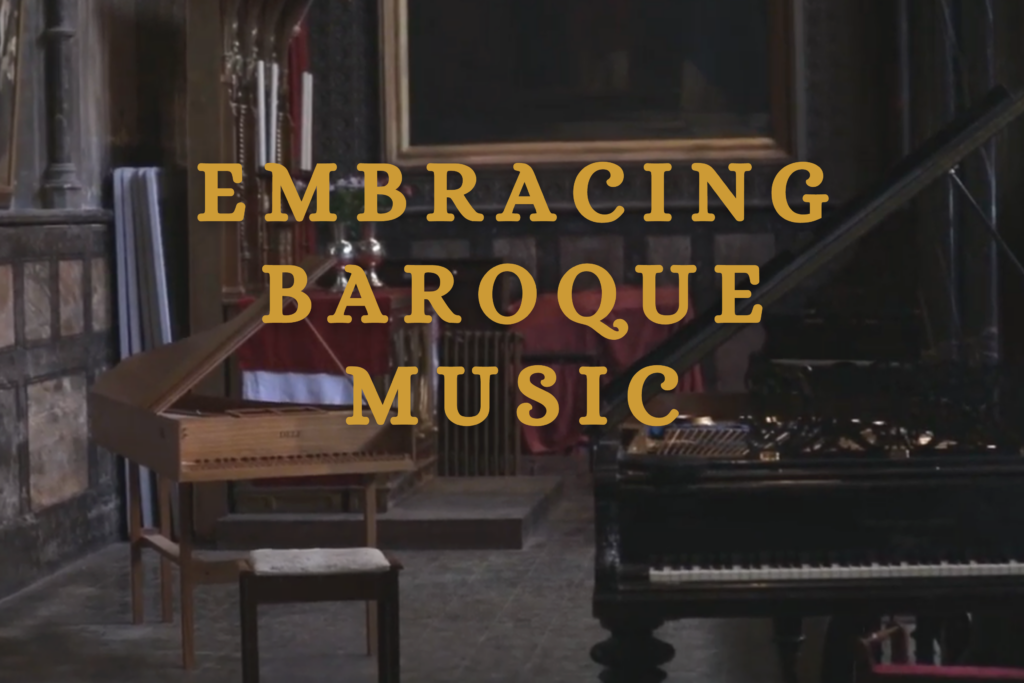Piano Lessons, Uncategorized
Reviving the Past: Contemporary Composers Embrace the Baroque Style
Embracing Baroque Music – Reviving the Past: Contemporary Composers Embrace the Baroque Style
Introduction
The world of classical music has always celebrated the works of great composers from different eras. While the Baroque period, with its ornate melodies and intricate counterpoint, may seem like a thing of the past, there is a group of contemporary composers who are breathing new life into this beloved musical style.
These talented individuals have taken up the challenge of composing in the Baroque style, creating a fascinating fusion of old and new. In this article, we will explore some of these remarkable composers who are embracing Baroque music and tradition, and continue to produce beautiful music that captivates audiences today.
Max Richter
Max Richter is a composer known for his unique blending of classical and electronic music. His critically acclaimed work, “Vivaldi Recomposed,” exemplifies his mastery of fusing Baroque elements with modern sensibilities. Richter reimagined Antonio Vivaldi‘s iconic “The Four Seasons” infusing it with contemporary harmonies and textures while preserving the essence of the original compositions. His innovative approach has garnered widespread recognition and opened up new avenues for exploring the Baroque style.
John Rutter
John Rutter is a prolific English composer renowned for his choral and sacred music. While Rutter is primarily associated with the contemporary choral tradition, his compositions often exhibit influences from the Baroque era. His mastery of counterpoint and his gift for crafting beautiful melodies evoke the spirit of composers such as Johann Sebastian Bach and George Frideric Handel. Rutter’s ability to seamlessly blend modern tonalities with Baroque-inspired harmonies has made him a prominent figure in contemporary classical music.
Caroline Shaw
Caroline Shaw, a Pulitzer Prize-winning composer, is known for her versatile and adventurous approach to composition. Shaw’s music displays a deep understanding of Baroque techniques, particularly her intricate contrapuntal writing. Her piece “Partita for 8 Voices” showcases her ability to weave together intricate vocal lines in a manner reminiscent of Bach‘s masterful fugues. Shaw’s unique perspective and reverence for the Baroque style have earned her critical acclaim and a dedicated following.
Nico Muhly
Nico Muhly is an American composer who has made significant contributions to contemporary classical music. Muhly’s compositions often draw inspiration from a wide range of musical styles, including the Baroque period. He combines elements of Baroque ornamentation with modern harmonies and rhythmic patterns, resulting in works that are both sophisticated and accessible. Muhly’s compositions exhibit a deep understanding of the Baroque aesthetic, while simultaneously pushing the boundaries of contemporary classical music.
Anna Clyne
Anna Clyne is a British composer celebrated for her innovative and imaginative compositions. While Clyne’s style is eclectic and diverse, her music occasionally reflects a nod to the Baroque era. She incorporates Baroque-inspired melodic motifs and contrapuntal textures into her works, creating a rich tapestry of sound. Clyne’s ability to infuse the Baroque style with her own distinct voice is a testament to her creativity and skill as a contemporary composer.
Conclusion
The enduring allure of the Baroque style has inspired a new generation of composers to explore its intricacies and adapt it to the modern world. Through their innovative compositions, these contemporary composers, such as Max Richter, John Rutter, Caroline Shaw, Nico Muhly, and Anna Clyne, have successfully revived the essence of the Baroque period. Their works serve as a bridge between the past and the present, allowing audiences to experience the beauty and complexity of the Baroque tradition in a fresh and vibrant way. As these talented composers continue to push the boundaries of classical music, we can look forward.

